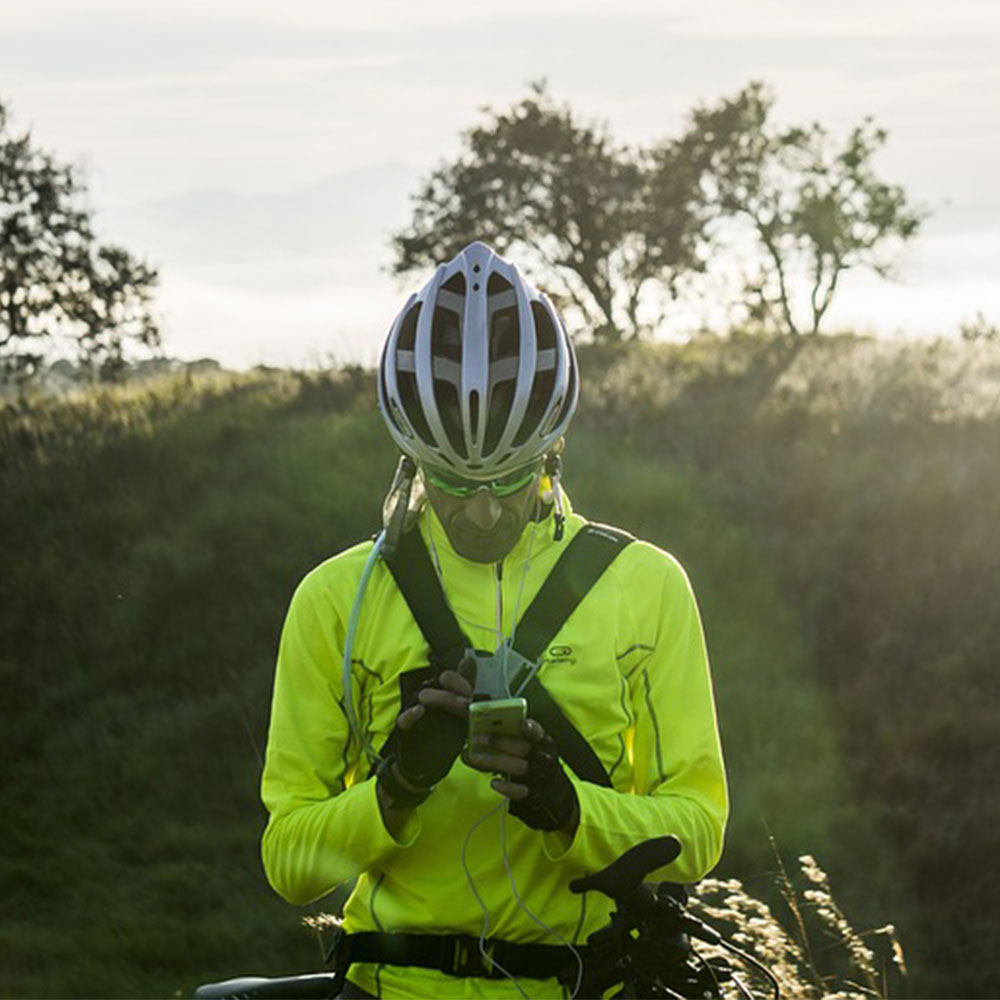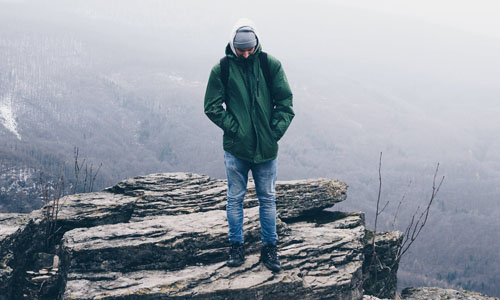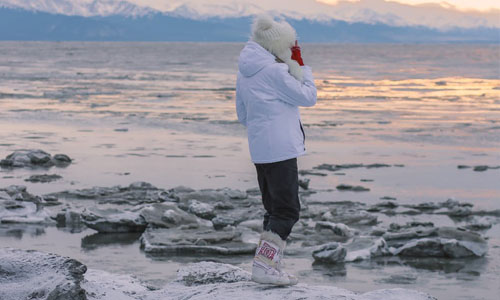10 Important Things You Will Need in Your Backpack for Winter Hiking
Author

Chris shares his passion for cycling, hiking, skiing, and climbing from Buxton, in the Peak District. As a blogger for Outdoor Look, Chris shares outdoor tips and indoor tricks to help you get the most out of your time spent outside. When he's not out adventuring he's making videos or trying to keep up with his 4-year-old son.
As the season for winter hiking ascends into its full glory, the question for hikers remains: what should they carry that would help in emergencies and other sorts of things? If the question has been bothering you, we have listed a few things that would be worth putting into consideration. Of course, we don't claim this to be your final packing list. These are just few of the essential items apart from first aid kit, drinks, and food that you may need in your adventures.

Emergency foil blanket
A foil blanket can help you in keeping yourself warm. It's winter and you will need as much protection from the cold as you can get. A foil protection, thus, is a life-saver. Plus, they are essentially lightweight and easy to pack which makes them a hassle-free necessity while hiking.
Power Bank
It's the digital age, and you don't know when your phone can run out of juice. Power banks are necessary since your phone is bound to lose more charge as the temperature turns lower. A power bank will be a nice investment for both your phone and mental peace. This is especially with regards to the fact that you may need your phone any time for map-reading or emergency phone calls.
Headtorch for the night
The last thing you want to be in your hiking is lost. One wrong turn and you might not find your way back on time. And, in the dark, these turns can be even harsher, especially during winters. The thought of wandering aimlessly without knowing trails leading you back home is every hiker's nightmare. That's why having a torchlight helps. It can help finding your way back.
Snacks for high energy
Hiking is bound to take a lot of your energy. You will need calories which you will get from high-energy snacks like Tracker Bars and Jaffa Cakes. Don't expect to get snacks while hiking since there might not be any store available. Packing them beforehand is the right thing to do.
Extra Layers for warmth
It's winters and a single layer will not be enough for your adventures. What if it gets wet due to rain? Hence, always be prepared to replace clothes and layer them. You don't need to spend and carry tons of clothes. All you need is a few extra thermals that would keep your body cosy.
Socks that are waterproof
You're hiking and it won't always be walking on smooth, dry land. Sometimes, water can get in your shoes and wet your socks, leaving your feet cold. So, rather than going for regular ones, choose waterproof socks. They may cost a little extra but not that much to leave a hole in your pocket.
Fire Starters
Heat and fire are the essentials in any emergency situation. But, starting the fire in the Neanderthal way is archaic, slow, and impractical. What Bear Grylls by rubbing some sticks to produce fire may not be possible for everyone. So, keep a box of matches or lighter in a sealed container so that you can instantly start the fire when needed.
Sunglasses
Have you ever heard of snow blindness? It's when your eyes are exposed to too much UV rays which are reflected by snow. Even though it might not have permanent effects, it can be a hassle while hiking. Besides, when it snows, there are chances of the snowflakes falling in your eyes. Hence, get UV protected sunglasses to keep your eyes safe.

Microspikes
If you plan mountain hiking, be prepared for snow and ice using crampons. But, if your area is more or less a hilly zone with less chances of snow, microspikes are a more practical and cost-effective choice. They can give your boots the grip they need and can be purchased within £20.
Buff
A Buff can be a crucial part of your journey. Firstly, it has almost no weight at all. Second, it can be your hat or a scarf, or anything you need it to be. It keeps your face and neck protected from the piercing cold wind. It can be quite soothing for your shivering bones.
Author

Chris shares his passion for cycling, hiking, skiing, and climbing from Buxton, in the Peak District. As a blogger for Outdoor Look, Chris shares outdoor tips and indoor tricks to help you get the most out of your time spent outside. When he's not out adventuring he's making videos or trying to keep up with his 4-year-old son.
- Speed Up Your Post-Hike Recovery with These 6 Essential Tips
- Cycling through Tranquil Roads and Coastal Views on the Isle of Wight
- The Essential Guide to Hiking Safety: 5 Tips Every Hiker Should Know
- Run Smart, Run Strong: Your Guide to Injury-Free Running
- Embrace Biking: Essential Tips for Beginners
Categories
- Sport (28)
- Product Reviews (3)
- Team Outdoor Look (7)
- Mike Wild (2)
- Mike Payton (2)
- Suse Hammond-Pears (3)
- Snowboarding (12)
- Latest Offers (105)
- Shop Talk (1)
- Competitions (7)
- Walking (413)
- Lifestyle Fashion (8)
- Travel (86)
- Kit Guides (176)
- Workwear Clothing (6)
- Safety Workwear (4)
- Health/Fitness (289)
- Skiing (91)
- Great Outdoors (1316)
- Cycling (92)
- January 2025
- December 2024
- November 2024
- October 2024
- September 2024
- August 2024
- July 2024
- June 2024
- May 2024
- April 2024
- March 2024
- February 2024
- January 2024
- December 2023
- November 2023
- October 2023
- September 2023
- August 2023
- July 2023
- June 2023
- May 2023
- April 2023
- March 2023
- February 2023
- January 2023
- December 2022
- November 2022
- October 2022
- September 2022
- August 2022
- July 2022
- June 2022
- May 2022
- April 2022
- March 2022
- February 2022
- January 2022
- December 2021
- November 2021
- October 2021
- September 2021
- August 2021
- July 2021
- June 2021
- May 2021
- April 2021
- March 2021
- February 2021
- January 2021
- December 2020
- November 2020
- October 2020
- September 2020
- August 2020
- July 2020
- June 2020
- May 2020
- April 2020
- March 2020
- February 2020
- January 2020
- December 2019
- November 2019
- October 2019
- September 2019
- August 2019
- July 2019
- June 2019
- May 2019
- April 2019
- March 2019
- February 2019
- January 2019
- December 2018
- November 2018
- October 2018
- September 2018
- August 2018
- July 2018
- June 2018
- May 2018
- April 2018
- March 2018
- February 2018
- January 2018
- December 2017
- November 2017
- October 2017
- September 2017
- August 2017
- July 2017
- June 2017
- May 2017
- April 2017
- March 2017
- February 2017
- January 2017
- December 2016
- November 2016
- October 2016
- September 2016
- August 2016
- July 2016
- June 2016
- May 2016
- April 2016
- March 2016
- February 2016
- January 2016
- December 2015
- November 2015
- October 2015
- September 2015
- August 2015
- July 2015
- June 2015
- May 2015
- April 2015
- March 2015
- February 2015
- January 2015
- December 2014
- November 2014
- October 2014
- September 2014
- August 2014
- July 2014
- June 2014
- May 2014
- April 2014
- March 2014
- February 2014
- January 2014
- December 2013
- November 2013
- October 2013
- September 2013
- August 2013
- July 2013
- June 2013
- May 2013
- April 2013
- March 2013
- February 2013
- January 2013
- December 2012
- November 2012
- October 2012
- September 2012
- August 2012
- July 2012
- June 2012
- May 2012
- April 2012
- March 2012
- February 2012
- January 2012
- December 2011
- November 2011
- October 2011
- September 2011
- August 2011
- May 2010
- April 2010
- March 2010
- February 2010
- January 2010
- November 2009
- October 2009
- September 2009


Submit a Comment